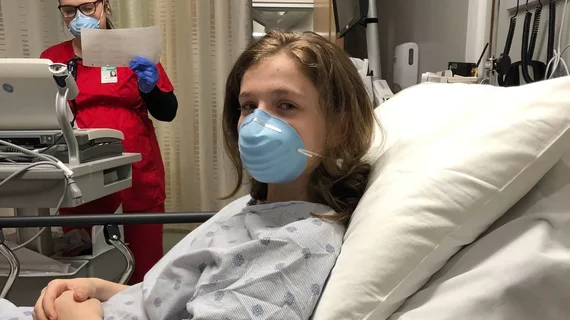Experimental AI separates mild COVID from serious trouble to come
A disease that hits most people mildly but some very hard—and so wreaks havoc with its unpredictability among the infected—would seem a good target for AI’s predictive prowess.
So it went with COVID-19 against a severity-sniffing algorithm in a small but promising study.
Developed by researchers at New York University in partnership with two hospitals in China, the experimental decision-support tool may help ER physicians decide which patients to admit and which to send home. That’s a critical decision to make during a pandemic that is stretching many hospitals’ resources past capacity.
To test the AI tool, researchers collected demographic, laboratory and radiological findings from 53 patients who, in January, tested positive for the novel coronavirus at the two Chinese hospitals participating in the study.
As has been typical around the world, nearly all 53 patients initially presented with mild cough, fever and stomach upset. Within a week, though, a minority of the patients had developed severe pneumonia or acute respiratory distress syndrome (ARDS).
It turned out that, contrary to earlier small studies, patterns seen in lung imaging and other markers—including age and sex—were not helpful in predicting which patients would get sickest.
Rather, the AI tool found, changes in three physiological metrics were the best predictors of severe disease soon to develop: elevated hemoglobin levels, deep muscle aches (myalgia), and slightly raised levels of the liver enzyme alanine aminotransferase.
Weighing these readings together with other factors, the team applied its AI tool and predicted risk of ARDS with up to 80% accuracy.
The work was published online March 30 in Computers, Materials & Continua.
In a news release sent by NYU, corresponding study author Megan Coffee, MD, PhD, says the model needs to be validated in larger studies.
Still, she adds, it “holds promise as another tool to predict the patients most vulnerable to the virus,” albeit “only in support of physicians’ hard-won clinical experience in treating viral infections.”
Click here for the news release and here for the full study.

